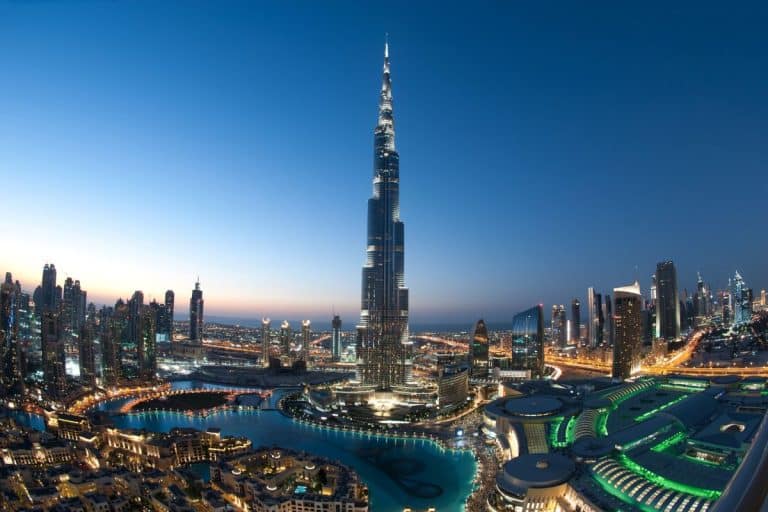Israeli startups are finally beginning to reap the rewards of the landmark Abraham Accords agreement, three years on from its signing, business leaders told Arabian Business.
Israel signed a US-mediated agreement, brokered by the then-President Donald Trump in August 2020, establishing full diplomatic relations with the UAE, Bahrain, Sudan and Morocco. Jordan and Egypt are the only two other Arab countries that fully recognise Israel. This leaves much of the Gulf states undecided.
However, according to Eric Reiner, Founder and Managing Partner of New York-based venture capitalist firm Vine Ventures, the Gulf region holds a lot of promise. Having recognised this, he recently left the US and moved to Israel to capitalise on the vastly untapped potential of the region.
“The US is one of the greatest countries in the world, but I think that the biggest growth opportunities in the world are within Israel and the GCC right now, so I just wanted to be closer to it,” he told Arabian Business.
“What inspires me so much about the UAE, and frankly, the GCC as a whole, is just how young the region is, how young the population is, and most importantly, the access the UAE has to the growing population of the world.”
A source who was directly involved in the creation of the Abraham Accords told Reiner that the UAE has access to around 50 percent of the world’s population under the age of 40 within just four hours.

Rather than viewing the UAE as “the capital of capital,” he believes Israeli companies would stand to benefit more by considering the many other advantages the Gulf country offers, such as access to younger populations and other untapped markets, but also shift their focus away from Western Europe and to think of how they can better serve the customers in the region.
“It’s not just Israel. I think it’s also the US. I’ve seen many of my friends that manage funds who are like “we need to raise capital, we’re just going to Dubai and we’re going to figure it out,” and they get it,” Reiner said.
“At the end of the day, the UAE is the new Switzerland. You have immense issues in Europe with what is going on in Russia and Ukraine and it’s just a very tough place right now. You have so much of the world’s population now in countries that the UAE has very immediate access to.”

Three years on from Abraham Accords
The Abraham Accords gave rise to opportunities that were not previously available for the UAE.
UAE-Israeli trade more than doubled last year. In 2022, bilateral non-oil trade between the two countries reached $2.49 billion, accounting for a 90 percent increase from 2021, with re-exports from Israel growing 71.2 percent and non-oil exports to Israel climbing 48.6 percent.
Troy Osher Fritzhand, Startups Lead at Jerusalem-based tech community Made in JLM, told Arabian Business that the agreement has been “groundbreaking” for Israeli startups.
“For years it was an open secret that a number of firms were engaging in business, but it was always through third-party intermediaries. Thanks to the normalisation agreement, it has become so easy to do business. This has opened doors particularly in the agriculture and water tech spaces, as these fields are critical to the region,” said Fritzhand.
“It is clear that the greatest economic opportunity in the world in our current generation is between Israel and the Gulf states. Natural partners with millennia of history, it was only a matter of time until normalisation occurred.
“The scope of cooperation is about much more than money – it is about creating a bloc that can lead the way in innovation, bringing forth peace and prosperity to nations and peoples well beyond the GCC and the Middle East.”

UAE a gateway to the East
With Israel having one of the world’s best technology capabilities in the world, the UAE and the markets surrounding it like Indonesia and Pakistan, could stand to gain so much more with the help of Israeli startups who can provide their technology.
“You have companies like ADNOC and other massive organisations generating a tonne of revenue and they are going to need technology … At the end of the day, all that revenue will flow through the UAE and I know that the GCC plans to diversify away from natural resources – this is one of the best ways for the UAE to do it as well,” said Reiner.
Israeli companies looking to work with others in the region should initiate contact with UAE-based businesses, he said, adding that if there’s demand for their product, they stand to benefit from working with the likes of Abu Dhabi tech ecosystem Hub71 and Dubai-based technology group G42.
“[Israel] has an immense passion for innovation and for newness, similar to the UAE and the rest of the GCC. No Israeli startup will ever build a company for the Israeli market; they will always be building for the global market.”

Since the signing of the historic agreement, the UAE-Israel Business Council has been working to advance the I2U2 initiative – a multilateral agreement between India, UAE, Israel and the US established in July 2022 – in six key focus areas: water, energy, transport, space, health and food security.
“The UAE is a regional hub and can also be an effective springboard and gateway [for Israeli startups] to access massive markets such as India, Asia, and East Africa,” Fleur Hassan-Nahoum, Deputy Mayor of Jerusalem for Foreign Relations and co-founder of the UAE-Israel Business Council and the Gulf-Israel Women’s Forum, told Arabian Business.
“We are finally able to deal with regional challenges as a region. Emirati and Israeli business women and men are sitting down, talking and getting to know each other. For the first time, they are beginning to understand the landscape of each other’s societies and economies, using this as the basis to carve a shared vision for the future,” said Hassan-Nahoum.






